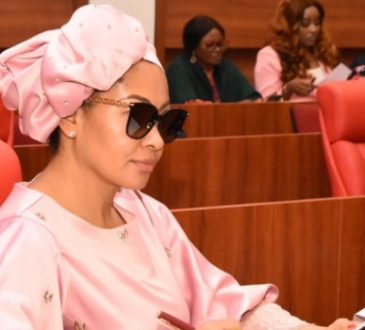
A Federal High Court sitting in Abuja has ordered the Nigerian government to disclose how the $5 billion Abacha loot was spent.
The court, in a judgment delivered on July 3, directed the administration of President Bola Tinubu to “disclose the exact amount of money stolen by General Sani Abacha from Nigeria, and the total amount of Abacha loot recovered and all agreements signed on same by the governments of former presidents Obasanjo, Yar’Adua, Jonathan and Buhari”.
Joined as defendants in the suit are the Minister of Finance and the Attorney General of the Federation and Minister of Justice.
The court presided by James Kolawole Omotosho gave the judgment in a Freedom of Information Act suit numbered FHC/ABJ/CS/407/2020, filed by the Socio-Economic Rights and Accountability Project (SERAP).
Omotosho ordered that the Federal Government through the Ministry of Finance should provide SERAP with the full spending details of about $5 billion Abacha loot within seven days of the judgment. The government was also ordered to disclose details of the projects executed with the money recovered.
The judge equally ordered the government to “disclose details of specific roles played by the World Bank and other partners in the execution of any projects funded with the Abacha loot under the governments of former presidents Obasanjo, Yar’Adua, Jonathan and Buhari”.
According to Omotosho, the excuse by the former Minister of Finance, Ahmed Zainab, for failing to furnish SERAP with the details, following the FOI request,, was not tenable in view of the provisions of Section 7 of the Freedom of Information Act.
The former finance minister had told SERAP that the Ministry does not have the details of the exact amount of public funds stolen by Abacha and how the funds have been spent.
Following the minister’s explanation, SERAP approached the court to compel the government to provide the information.
Parts of the judgment read: “The failure of the Minister of Finance to write to SERAP informing it of where the said information exists or to transfer the request to a public office who has custody of such information is fatal to their case under Section 5 of the Freedom of Information Act.
“The Ministry cannot use a blanket statement that it was not in possession of the said records of about $5 billion Abacha loot sought by SERAP. The government failed to provide details of the projects executed with the money. It also failed to provide locations of the projects and the names of the companies and contractors that carried out or are carrying out the projects funded with the money.
“I hold that by the clear wordings of Section 7 of the Freedom of Information Act, 2011, access to information about spending details of $5 billion Abacha loot was denied SERAP by the Federal Government.”
The Federal Government had in a 14 paragraph counter affidavit deposed to by Abah Sunday, Litigation Officer in the office of the Attorney General of the Federation, argued that SERAP’s suit was frivolous. The affidavit further argued that SERAP did not show that the government denied it the information it sought.
The government also stated that SERAP did not establish sufficient interest in its application and urged the court to dismiss the suit.
However, disagreeing with the government, the judge added, “For the sake of emphasis, possession of locus standi has been the bane of the citizens’ advocates, in the public interest litigation, to query transparency and accountability in governance in Nigeria.
“In a democratic dispensation, such as in Nigeria, the citizens have been proclaimed the owners of sovereignty and mandates that place leaders in the saddle.
“The requirement is a serious fracture of the citizens’ inalienable right to ventilate their grievances against poor governance vis-à-vis expenditure of public funds generated from their taxes.
“The sacrosanct provision of Section 1(2) of the Freedom of Information Act, which has ostracised this disturbing requirement, has, admirably, remedied the harmful mischief appurtenant to it.
“Clearly, Section 1 gives a person the right to access any information from any public institution in Nigeria. SERAP is an organisation registered in Nigeria and thus a juristic person. As a juristic person, SERAP need not show any specific interest in the spending details of about $5 billion Abacha loot to be entitled to the same.
“I therefore hold that SERAP is entitled to the information on the spending details of about $5 billion Abacha loot, and need not show any special interest in the information sought.”






